Advertisement
The Brattle celebrates pivotal screwball comedy star Jean Arthur
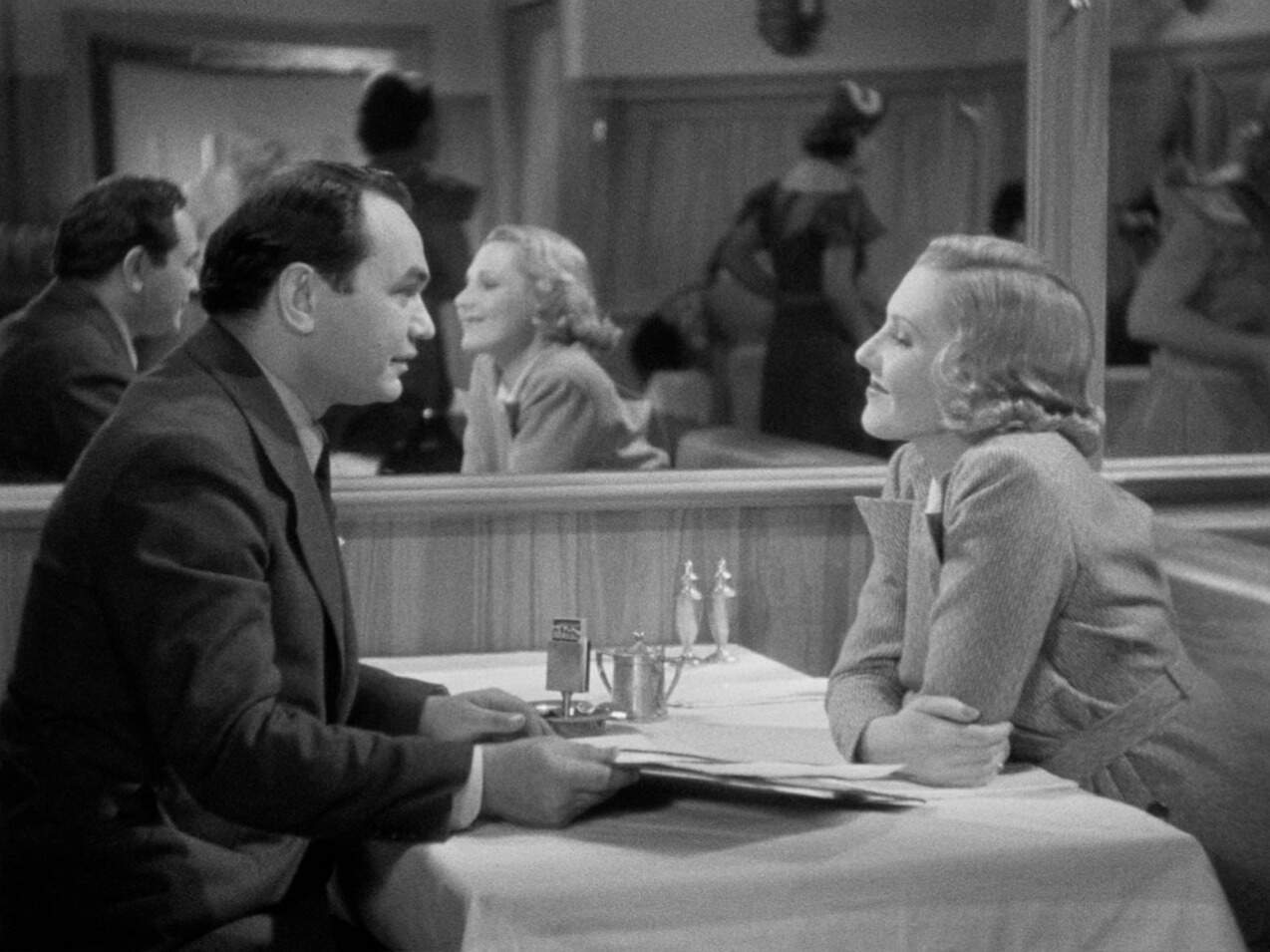
Actress Jean Arthur famously described the sound of her voice as “a foghorn.” Already an established star in silent cinema first cast by John Ford in 1923’s “Cameo Kirby,” Arthur probably wouldn’t have gotten a foot in the door after the advent of sound, so unique was the tenor of her particular honk, an astonishingly versatile instrument both babyish and raspy that writers over the years have tied themselves in knots trying to evoke. Critic Dave Kehr said “she sounded like a 14-year-old with a two-pack-a-day habit,” while my favorite description comes from the actor Edward G. Robinson, who called it “a voice that grated like fresh peppermint.”
It was perhaps due to her fiercely private nature that Arthur never ascended to the household name status of a Hepburn or Stanwyck. (She may have been the only actress in history who hated having her picture taken.) A 1997 biography by John Oller was called “Jean Arthur: The Actress Nobody Knew,” yet she was a pivotal figure in screwball comedies of her era and served as the secret weapon of directors like Frank Capra. This is why the Brattle Theatre’s yearlong celebration of Columbia Pictures’ 100th anniversary kicks off this month with “Jean Arthur, Sweetness with Spine,” an 11-film series highlighting some of the star’s most deceptively deft performances, from the dizzying comic heights of “The Talk of the Town” and “The More the Merrier” to more overtly dramatic classics like Capra’s “Mr. Smith Goes to Washington” and Howard Hawks’ “Only Angels Have Wings.”
She had a type. Arthur was typically cast as a single, professional woman who lived on her own — still a fairly radical thing to see onscreen in the late 1930s and early ‘40s — coming charmingly unglued by her male co-stars and the chaotic circumstances surrounding her. As Ian Brownell, host of The Brattle Film Podcast, explained, “She almost always played a well-ordered woman who gets into a situation that she can’t control. As she grows more anxious, the pitch of her voice increases, but you would never describe her characters as shrill or bombastic.” Indeed, what made Arthur’s heroines unique was that they never seemed diminished, even when falling to pieces. These weren’t shrews to be tamed, but rather independent women blossoming into their best selves. “The more flustered she becomes,” Brownell added, “the more her co-stars and the audience fall in love with her.”
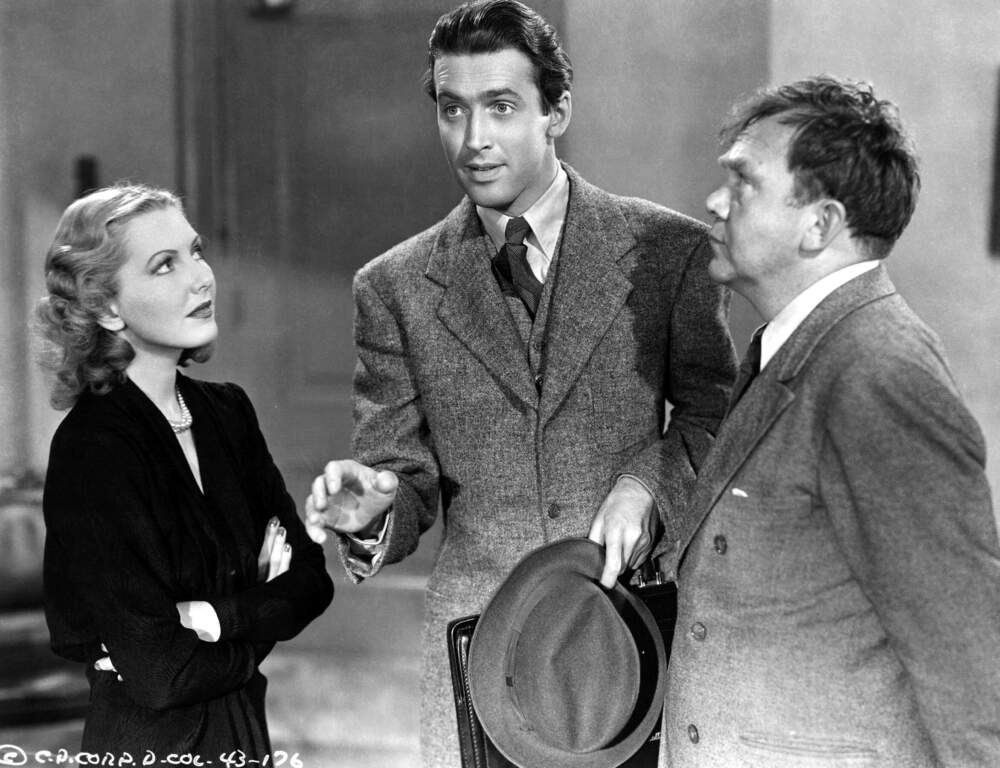
The Brattle series begins with 1939’s “Mr. Smith Goes to Washington,” director Capra’s most astute use of the actress’ sly, sophisticated charms to temper a movie that would otherwise be a bit much. As the cynical, seen-it-all D.C. insider won over by Jimmy Stewart’s pie-eyed rube, Arthur serves as our audience surrogate. At first, she can’t help but mock his cornpone naiveté, yet over the course of the film she thaws in that way that only Arthur can — a mid-movie drunk scene exercising that foghorn voice in all its glorious excess. The character seems to surprise herself with an idealism she thought she’d long ago shed, ultimately helping the inexperienced junior senator take on a corrupt Congress. Brownell concurred, “Without Jean Arthur, we’d get tired of Mr. Smith. But since this savvy, cynical woman finds him honorable and inspiring, we root for him too.”
Arthur’s role in “Mr. Smith” was a variation on the part she’d played three years prior in Capra’s “Mr. Deeds Goes to Town,” co-starring as a hard-boiled reporter who duplicitously sweet-talks her way into the affections of Gary Cooper’s aw-shucks, accidental millionaire for the sake of a scoop. In a classic Arthurian dilemma, she discovers that the feelings she’s been feigning just might be real. The actress is given considerably less to do in her other collaboration with the filmmaker, 1938’s “You Can’t Take It with You.” Admittedly, this is one where the Capra corn becomes a bit of an eye roll for me, pitting a house full of aggressively eccentric common folks against a family of snooty bankers with tiresomely didactic results. The saving grace is the star-crossed romance between Stewart’s scion of exorbitant wealth and Arthur’s ordinary gal, their scenes together sizzling with an ardor that the movie has no idea what to do with.
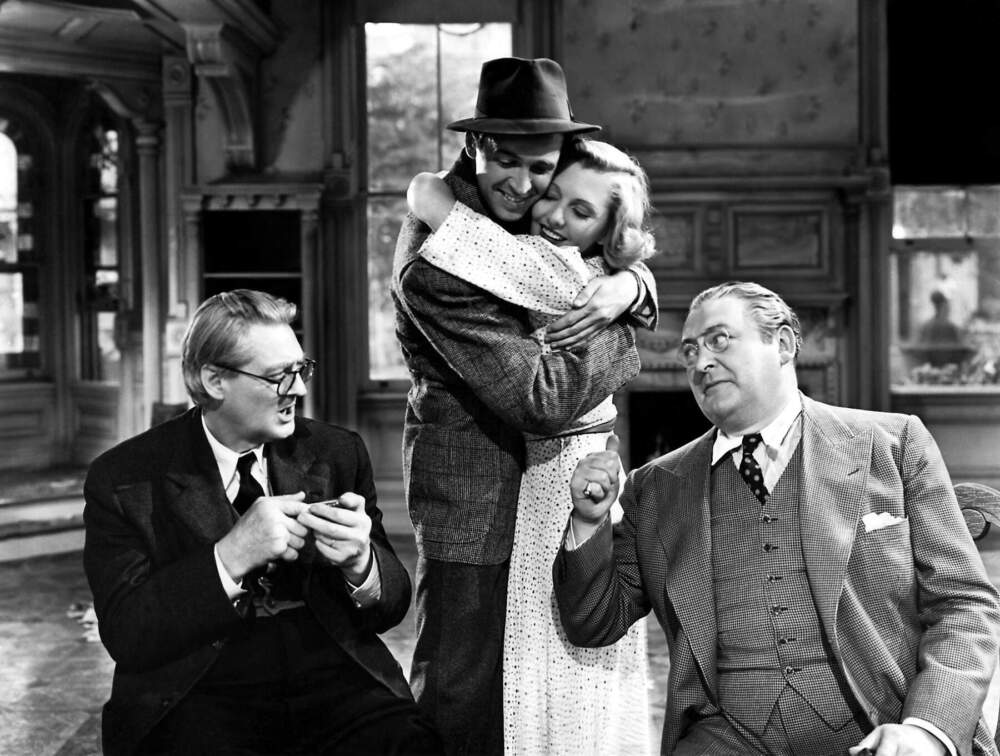
The actress often brought that kind of refreshingly adult sexuality to her performances, especially opposite Joel McCrea in 1943’s “The More the Merrier,” for which Arthur received her only Academy Award nomination. She stars as an uptight working woman who tries to help the war effort by renting out part of her spacious apartment, a patriotic gesture saddling her with the company of a meddlesome matchmaker (Charles Coburn) and a hunky soldier (Joel McCrea) who’s about to ship out, in a farce that’s funny and sometimes startlingly hot. (McCrea otherwise only had this kind of chemistry with Randolph Scott.) The climax provides a tour de force for that amazing foghorn voice, requiring Arthur to simultaneously be both sobbing inconsolably and happier than she’s ever been. The array of sounds she comes up with in the film’s final moments are presumably what got her the Oscar nod.
“The More the Merrier” was Arthur’s second close-quarters collaboration with director George Stevens. The previous year found her juggling the affections of a stodgy Boston law professor (Ronald Colman) and a rakish fugitive framed for murder (Cary Grant) under the same roof in Stevens’ “The Talk of the Town.” It’s a densely plotted and ingeniously staged picture, although as the Brattle’s Creative Director Ned Hinkle noted, “the town should be talking about the obvious love affair between Ronald Colman and Cary Grant and poor Jean Arthur thinking they’re both nuts about her.”
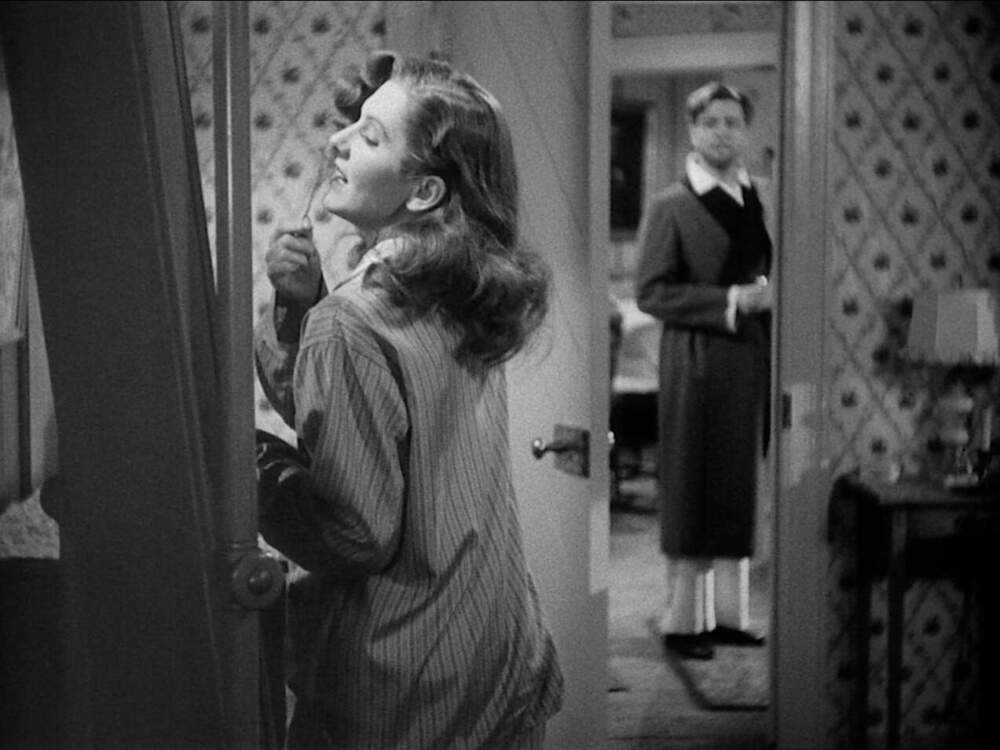
Despite their similar-sounding titles, “The Talk of the Town” should not be confused with “The Whole Town’s Talking,” John Ford’s rollicking 1935 comedy in which Edward G. Robinson plays a double role as a notorious bank robber and the meek advertising clerk who uses the resemblance to try and woo a co-worker (played by Arthur, of course). The Brattle series is chock full of titles that Hollywood could probably only get away with in that particular era, including “Too Many Husbands,” “More Than a Secretary” and “If You Could Only Cook.”
But the most evocative title — and one of the greatest of all films, period — is “Only Angels Have Wings.” Director Howard Hawks’ rousing 1939 adventure stars Arthur as a showgirl stopping over in the South American banana boat port of Barranca, where a saloon full of hardscrabble pilots fly ramshackle mail planes through routinely deadly weather conditions. Despite her better judgment, Arthur finds herself falling for Cary Grant’s acerbic airline captain, his tough-talking pragmatism just barely concealing a battered heart of gold. A grandfather to “Top Gun: Maverick,” the massively entertaining movie is a celebration of flyboy swagger and sentimentality, sitting alongside “Rio Bravo” as perhaps the purest of director Hawks’ salutes to no-nonsense professionalism and camaraderie.
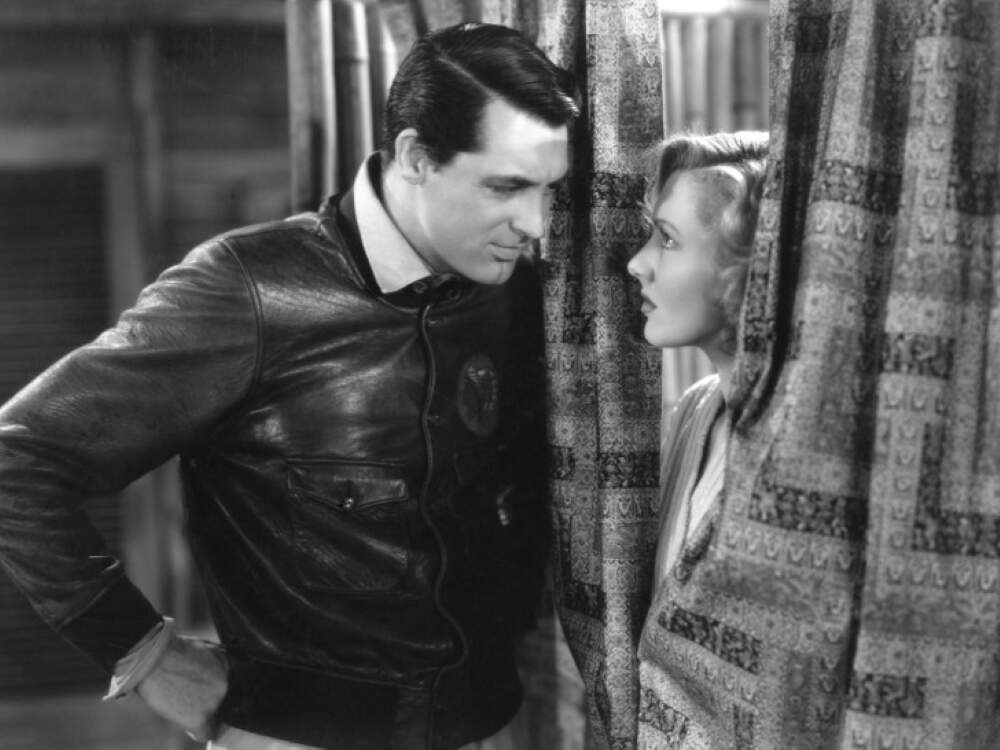
Arthur feels right at home here, outdrinking all the boys at the bar and giving back as good as she gets when it comes to the bawdy banter. She’s the quintessential Hawks-ian woman, sexy in a way that’s tougher than you without compromising her femininity. (I once had a friend who claimed he never married because he was saving himself for Jean Arthur in “Only Angels Have Wings.”) Hawks, a filmmaker who knew a good thing when he saw one, trusts Arthur enough to allow the movie’s emotional resolution to play out entirely on her face. It’s a declaration of love disguised as a flip of a two-headed coin. We get to watch her putting it all together, then another blast of that glorious foghorn as she lets loose an ecstatically elongated, “Hey!”
“Jean Arthur, Sweetness with Spine” runs at the Brattle Theatre from Friday, Feb. 2 through Thursday, Feb. 8.
